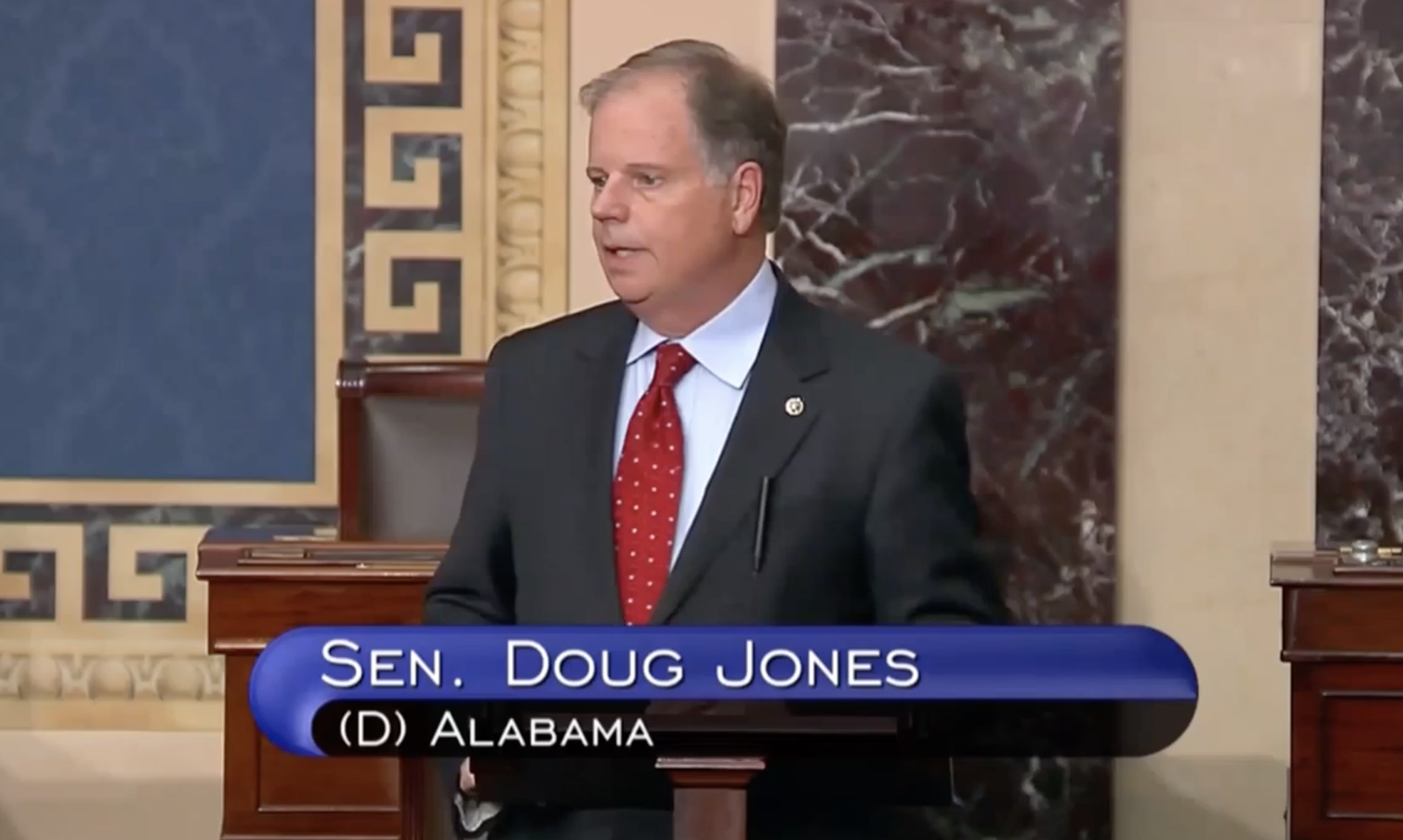U.S. Sen. Doug Jones, D-Alabama, on Thursday asked Senate leadership to include money for public schools and students in the next round of COVID-19 relief funding.
Jones and Sen. Lisa Murkowski, R-Alaska, led a group of other senators in drafting a letter to Senate Majority Leader Mitch McConnell and Minority Leader Chuck Schumer that urges aid to be directed to education during the coronavirus crisis.
“We continue to see the challenges our states and school districts face on a daily basis and the impact this pandemic will have on education budgets over the next 18 months. Less than 1% of the CARES Act funding was specifically dedicated to supporting public schools,” the letter reads. “This is insufficient to stabilize education through this crisis. We are particularly concerned about how the educator workforce and other school personnel will be impacted by COVID-19.”
“It is not just teachers who will be impacted by these shrinking education budgets. Countless cafeteria workers, school bus drivers, counselors, and other support staff are expected to take a dramatic hit during this pandemic. Our students cannot meet their full potential without the many professionals that make their schools work for them day in and day out,” the letter continues.
Approximately $13.2 billion through the CARES act Education Stabilization Fund has already been disbursed to governors for distribution to K-12 schools.
Education organizations recommend $175 billion more for the Education Stabilization Fund to be divided between local education agencies and institutions of higher education, according to a press release from Jones’s office.
Full letter below:
Dear Majority Leader McConnell and Minority Leader Schumer:
We write to urge you to include, in any upcoming legislation designed to provide additional relief to Americans during the COVID 19 pandemic, significant additional support for our nation’s schools. While the Coronavirus Aid, Relief, and Economic Security (CARES) Act included an Education Stabilization Fund to provide immediate support, we continue to see the challenges our states and school districts face on a daily basis and the impact this pandemic will have on education budgets over the next 18 months. Less than 1% of the CARES Act funding was specifically dedicated to supporting public schools. This is insufficient to stabilize education through this crisis. We are particularly concerned about how the educator workforce and other school personnel will be impacted by COVID-19.
School districts rely almost entirely on state and local revenue. Low-wealth districts rely the most heavily on state aid and will be most impacted by the economic implications of this crisis. It is our duty to ensure that children receive the education they are rightfully entitled to. Students cannot learn if their schools are forced to downsize operations, eliminate teaching positions in critical subjects, or lay off other critical support staff such as social workers and counselors, due to depleted budgets.
The U.S. economy is expected to contract by six percent in 2021,[1] changing the lives of all Americans in dramatic ways that are not yet fully known. One thing is certain however, students will still need to continue learning and progressing through school. Our nation’s teachers are crucial to ensuring that learning can continue, yet current projections expect the reductions in education spending due to the pandemic to be two and a half times worse than the lowest point of the last recession. [2] It is not just teachers who will be impacted by these shrinking education budgets. Countless cafeteria workers, school bus drivers, counselors, and other support staff are expected to take a dramatic hit during this pandemic. Our students cannot meet their full potential without the many professionals that make their schools work for them day in and day out.
As local communities and school districts see their revenue shrink, they will be forced to look at staffing cuts, as salaries and benefits comprise the majority of school budgets. As a result of this crisis, Learning Policy Institute estimates that if states experience a 20% decline in revenue, without federal intervention, about 460,000 educator positions will be eliminated. [3] Congress must invest now to stabilize the public education sector and fill the current gaps in our education workforce and prevent an even more dire shortage in the years to come.
In addition to focusing on our educator workforce in any upcoming economic relief package, we urge you to continue to help schools to address learning loss facing our most disadvantaged students and ensure that all students with disabilities can continue to access the Free Appropriate Public Education to which they are entitled. We therefore urge you to provide substantial, flexible additional investments through Title I of the Elementary and Secondary Education Act and the Individuals with Disabilities Education Act. Finally, if the next funding package includes infrastructure provisions, we urge you to explicitly include K-12 schools as eligible recipients for funds.
Thank you for your consideration of this important matter.






















































